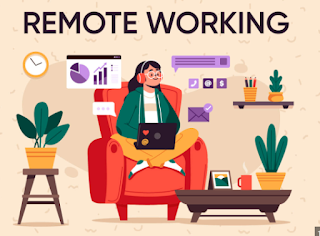Dell told employees who had been working remotely during the height of the COVID-19 pandemic they needed to be at least hybrid or could stay remote and face certain consequences. Almost half chose the, "Or else," that was threatened as they preferred to work remotely. Now they can no longer be promoted, but aren't sitting in mostly empty offices having Zoom calls with other mostly empty offices as compared to staying home and saving time and money on a commute. If people can work remotely with it causing little-to-no issues, why do big companies want to force them into the office?
I mean, the answers to why a lot of companies are anti-work-from-home is obvious once you get past the B.S. response of it, "Helping building community/a good work culture," or something. It makes certain middle managers unnecessary, and that scares those in positions of power. There are the real estate companies wanting to sell land and/or people who want rent money. There are tax perks, and the list goes on. Hence, we get those claiming remote work is bad for some reason or another. It is silly.
If you work remotely and get results for your employer, that's what matters. If you work in an office and fail to get results, how is that any better? You can fake looking busy in an office but accomplish very little but when you're working remotely it is all about what gets done. You think employers would like this, but a number of them are opposed to work-from-home. I just hope that some balance can be struck between those who work in an office, those who follow a hybrid model, and the folks who want to be fully remote.



No comments:
Post a Comment